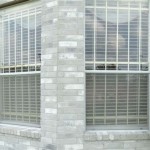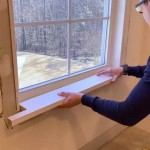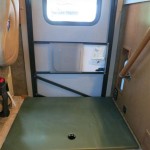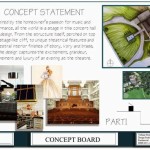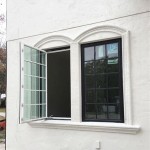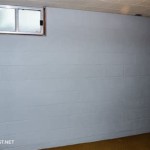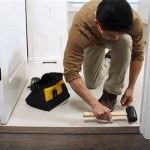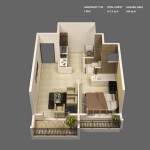Questions To Ask An Interior Designer About Their Job
Engaging an interior designer represents a significant investment, not just financially, but also in the time and emotional energy dedicated to transforming a space. To ensure a successful collaboration and achieve desired outcomes, prospective clients should thoroughly vet potential designers. This involves asking pertinent questions that delve into their experience, design philosophy, and working processes. The following questions provide a framework for evaluating an interior designer's suitability for a specific project.
Experience and Qualifications
Before entrusting a designer with a project, it is crucial to ascertain their level of experience and relevant qualifications. Asking about their background ensures clients are working with a knowledgeable and capable professional.
What is your educational background and professional training? This question explores the foundation of the designer's expertise. A degree in interior design, architecture, or a related field provides a comprehensive understanding of design principles, spatial planning, and building codes. Professional training and certifications, such as those offered by organizations like the American Society of Interior Designers (ASID), demonstrate a commitment to maintaining professional standards and staying abreast of industry trends.
How many years of experience do you have in interior design? The number of years a designer has worked in the field provides an indication of their practical experience. More experienced designers are likely to have encountered a wider range of challenges and developed effective problem-solving skills. However, experience alone is not the sole determinant of competence; the quality and variety of projects undertaken are also important considerations.
Have you worked on projects similar to mine before? This question addresses the designer's familiarity with the specific type of project. For instance, a designer specializing in residential renovations may not be the best fit for a large-scale commercial project. Reviewing their portfolio for similar projects can provide insight into their capabilities and design aesthetic.
Can you provide references from past clients? Speaking with past clients offers valuable insights into the designer's professionalism, communication skills, and ability to meet deadlines and budget constraints. References can provide a firsthand account of the client-designer relationship and highlight any potential challenges or areas of concern.
Are you licensed or certified in interior design? Depending on the jurisdiction, interior design may be a regulated profession. Licensing or certification ensures that the designer has met certain minimum standards of competency and adheres to a code of ethics. In areas where licensing is not mandatory, voluntary certification can still be a sign of professionalism and commitment to excellence.
Design Philosophy and Process
Understanding a designer's approach to design and their working process is essential for ensuring a compatible collaboration. This section focuses on questions that explore their design philosophy and how they manage projects from conception to completion.
What is your design philosophy? This question aims to uncover the designer's core beliefs and values regarding design. Do they prioritize functionality, aesthetics, sustainability, or a combination of factors? Understanding their philosophy helps determine whether their approach aligns with the client's own preferences and goals. A clearly articulated design philosophy demonstrates a thoughtful and intentional approach to the design process.
How do you typically begin a project? Understanding the initial steps a designer takes provides insight into their organizational skills and their ability to gather information effectively. Do they conduct thorough consultations with the client to understand their needs and preferences? Do they perform site surveys to assess the existing space and identify potential challenges? A structured and well-defined process ensures that the project is grounded in a clear understanding of the client's requirements and the constraints of the space.
How do you incorporate my personal style and preferences into the design? A good designer should be able to translate the client's vision into a cohesive and functional design. This question explores how the designer actively listens to the client's ideas and integrates them into the overall plan. Do they offer mood boards, sketches, or 3D renderings to help the client visualize the proposed design? A collaborative approach ensures that the final design reflects the client's unique personality and lifestyle.
What is your approach to space planning and functionality? Effective space planning is crucial for creating a comfortable and efficient living or working environment. This question explores the designer's ability to optimize the use of space, consider traffic flow, and ensure that the layout meets the client's specific needs. A well-planned space should be both aesthetically pleasing and highly functional.
How do you stay current with design trends and new products? The interior design industry is constantly evolving, with new materials, technologies, and design trends emerging regularly. A designer who stays informed about these developments is better equipped to offer innovative and contemporary solutions. Do they attend industry trade shows, read design publications, or participate in continuing education programs?
Budget and Project Management
Managing the budget effectively and keeping the project on schedule are critical for a successful outcome. These questions address the designer's financial practices and their ability to manage the project efficiently.
What are your fees and how do you structure your billing? Understanding the fee structure is essential for avoiding surprises later on. Do they charge an hourly rate, a fixed fee, or a percentage of the total project cost? It is important to clarify what is included in the fees and whether there are any additional charges for things like travel expenses or revisions. A transparent and well-defined fee structure ensures that both parties are on the same page from the outset.
Can you provide a detailed budget breakdown for my project? A comprehensive budget breakdown should outline all the anticipated costs, including materials, labor, and any other expenses. This allows the client to assess the financial feasibility of the project and make informed decisions about spending. The budget should be realistic and account for potential contingencies.
How do you handle unforeseen expenses or budget overruns? Despite careful planning, unforeseen expenses can sometimes arise during a project. It is important to understand how the designer handles these situations. Do they have a contingency plan in place? How do they communicate with the client about unexpected costs? A proactive and transparent approach to managing budget overruns is crucial for maintaining trust and avoiding conflicts.
What is your process for sourcing materials and selecting contractors? The quality of materials and workmanship can significantly impact the outcome of a project. This question explores the designer's network of suppliers and contractors. Do they have established relationships with reputable vendors? How do they ensure that the materials meet the client's specifications and budget? A strong network of reliable suppliers and contractors is essential for ensuring a smooth and successful project.
What is your timeline for completing the project and how will you ensure that it stays on schedule? Delays can be frustrating and costly. Understanding the designer's project management skills is crucial for keeping the project on track. Do they use project management software to track progress and deadlines? How do they communicate with the client about project updates and potential delays? A well-defined timeline and effective project management skills are essential for ensuring that the project is completed on time and within budget.
Asking these questions provides prospective clients with the information necessary to make an informed decision when selecting an interior designer. Thoroughly evaluating a designer's experience, design philosophy, and project management capabilities will increase the likelihood of a successful and satisfying design experience.

10 Questions To Ask Interior Designers Before Hiring Paige Studio Dallas Designer

8 Essential Questions To Ask When Hiring An Interior Designer Laura U Design Collective

5 Questions To Ask An Interior Designer Stone House Collective

8 Essential Questions To Ask When Hiring An Interior Designer Laura U Design Collective

Interior Designer Essential Questions Every Student Must Ask

8 Essential Questions To Ask When Hiring An Interior Designer Laura U Design Collective

Top 5 Questions To Ask Before Hiring Interior Designers Choosing Competent Geomatrix

Interior Design Questionnaire 30 Insightful Questions To Ask

8 Essential Questions To Ask When Hiring An Interior Designer Laura U Design Collective
.jpg?strip=all)
8 Essential Questions To Ask When Hiring An Interior Designer
Related Posts

